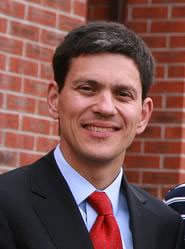
The discussion following foreign secretary David Miliband’s speech in Bruges on 15 November was all about the prime minister’s intervention in the text. In case you missed it, the version actually delivered on the day was different in a number of respects from the version circulated in advance to the media, with the differences attributed to Gordon Brown. In a government of all the talents, he is clearly a man of all the talents, those talents extending as far as proofreading.
The tone of the changes was to reduce the overall vision for Europe in the speech – which you can read here – but if we are honest, nobody is really looking to the UK for leadership in Europe right now so to that extent the row about the editing is largely a fuss about nothing.
However, even in the edited version, there are some interesting things to note. It is a pity that they were overshadowed by the debate about the prime minister’s intervention, because actually they contain the kernel of a good idea.
The central thrust of the speech, indeed the title of the speech, was “model power not superpower”. Europe could be a model power by:
(1) being “open – open to trade, open to ideas and open to investment”
(2) using “the power of shared institutions and shared activities to help overcome religious, regional, and cultural divides, especially with the Islamic world”
(3) “should champion international law and human rights not just internally, but externally too”
(4) becoming “a low carbon power … an Environmental Union”
Apparently the foreign secretary also wanted to say some things about European military cooperation but these were toned down.
But the four points that survived are fine. They represent, if I can use this phrase, the progressive consensus, but everything rests on their implementation, not their enunciation. This is where the second part of David Miliband’s theme comes in: the refusal to become a superpower.
David Miliband defined the term by saying:
“An American academic has defined a superpower as ‘a country that has the capacity to project dominating power and influence anywhere in the world… and so may plausibly attain the status of global hegemon’.”
(You can find that definition on Wikipedia, which is probably where David Miliband’s speech writer found it. That academic, by the way, was Lyman Miller, who is noted for expertise on China rather than on international relations as such, which might explain her anonymity in the speech.)
And he adds that:
“The EU is not and never will be a superpower. An EU of 27 nation states or more is never going to have the fleetness of foot or the fiscal base to dominate.”
I welcome that. It is a vision of Europe of a certain kind, being acceptable to Gordon Brown in that it implicitly rejects the idea of rivalry with America, but I welcome it for a different reason. I don’t think it’s a good idea for any country to take on the mantle of being a superpower, not even America. This isn’t being anti-American, but being anti-superpower.
The problem with being a superpower is precisely that capacity to project dominating power anywhere in the world. Whenever any issue arises, there is the possibility to get involved and therefore the hope, from one side or another, that you will. Whatever the issue, someone is going to try to drag the Americans in if they think that the Americans will be on their side.
And that is not only bad for the superpower, it is also bad for the issues. Third countries will base their own assessments of issues partly on what they mean for their relations with the superpower rather than on the merits of the issue as such. Think of the war in Iraq: countries such as the UK, Poland and Italy all supported the war because of their relationship with America, rather than specifically because of concerns about Iraq. Silvio Berlusconi, than Italian prime minister admitted this openly; Tony Blair was less clear but this was still his main reason for joining the war.
And you can add to all that the sheer cost of being a superpower, a cost that even the Americans can no longer afford to pay. It is a genuine question whether even the Americans can actually project “dominating power and influence” throughout the world any more. They don’t seem able to control impose their will on Iraq, still less on Iran. Maybe the era of all superpowers is passed.
Hubert Védrine, the then French foreign minister, described the United States as not only a superpower but even a “hyperpower” in a speech back in 1999. The neo-cons in Washington shared that view, but the passage of events has shown it to be false. It is one thing to pretend to be all-powerful, it is another thing actually to be all-powerful, and the moment of discovery can bring a nasty shock.
David Miliband is right to reject the dream of aspiring to superpower status. Maybe there is a lesson for Gordon Brown here, too.
